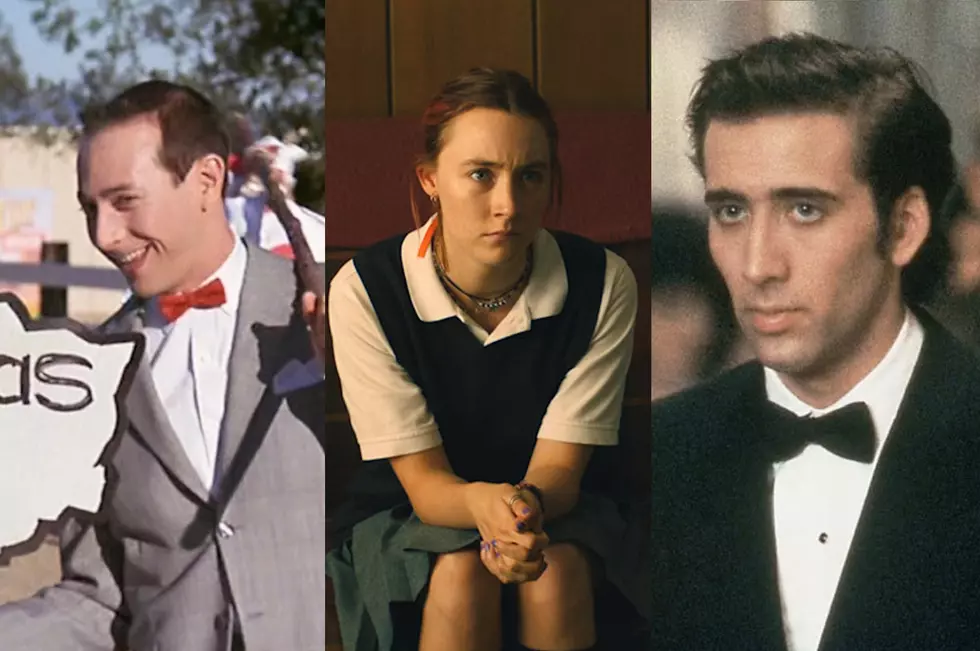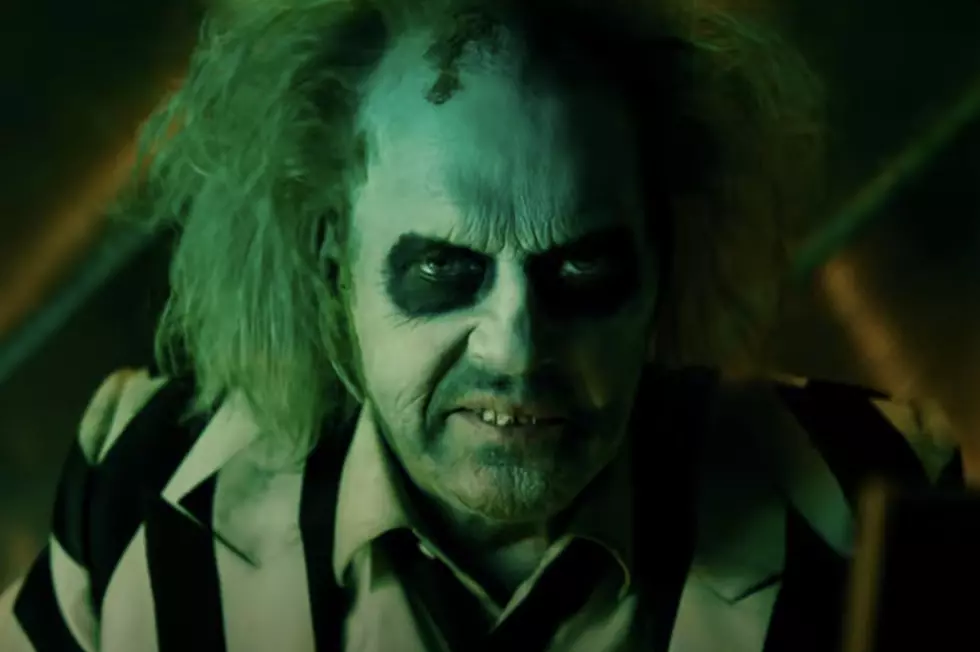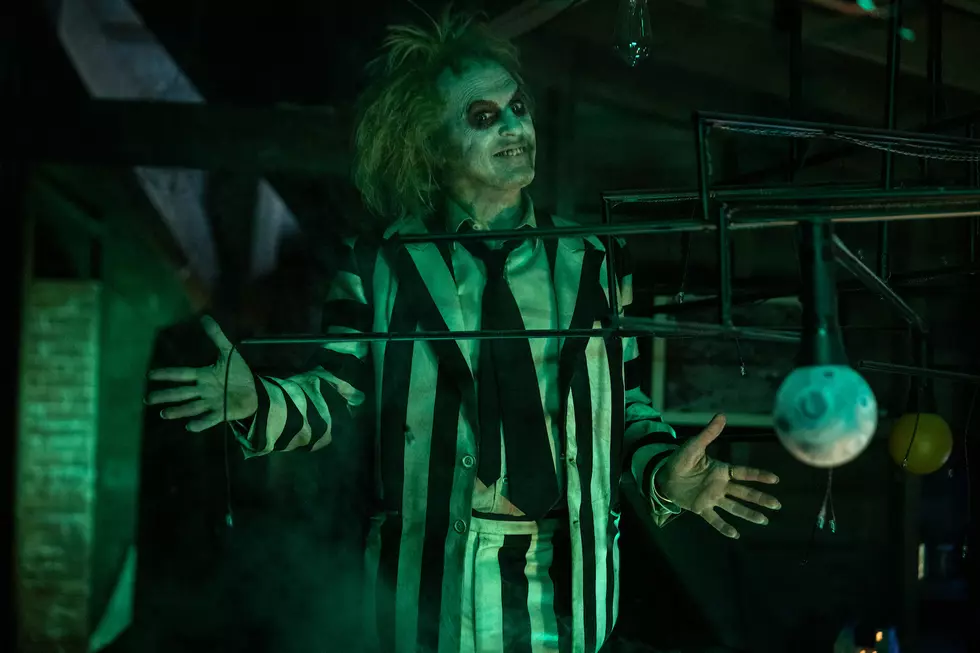
Christoph Waltz on ‘Big Eyes’ and Why He Wanted to Be in a James Bond Movie
Christoph Waltz is a lot like what you might expect Christoph Waltz to be like in person: Forever charming, even when he doesn’t agree with what you are saying. And Waltz always has a lot to say, which comes from an interesting perspective as an actor who, after years in German cinema, now owns two Academy Awards. Waltz has an equally interesting approach to characters—he doesn’t see characters as “good” or “bad”; and he certainly doesn’t let himself think about the fact that in his latest film, Tim Burton’s ‘Big Eyes,’ he’s playing a real person—but whatever Waltz is doing, it appears to be working.
In ‘Big Eyes,’ Waltz plays Walter Keane, a seemingly whimsical and delightful man who convinces his new wife, Margaret (Amy Adams), that he should take the credit for her portraits depicting seeming normal human faces, only with huge exaggerated eyes. Ahead, Waltz discusses his place in Hollywood, his experience hosting ‘SNL,’ and why he wanted to do a James Bond movie. (Shakespeare is somehow involved.)
Last time we spoke was two years ago, right before ‘Django Unchained’ opened. You had won one Oscar already, but at that point was there still a sense you had to prove yourself in Hollywood?
Not in that respect. I’m sort of an old dog in that respect. Things change, but they change anyway all the time. For me, things have changed dramatically, drastically—and very, very favorably in reference to my work. I’m so excited because it opens opportunities. The awards are wonderful and the accolade is wonderful; I have an ego, just like the next guy that needs to be stroked and fed in a way. But, that’s not really what I’m doing it for. That’s why these directors that I work with are so important.
And two years ago, it was obvious how well you clicked with Tarantino, but it did seem like you were trying to figure out what else you could do. And it seems now that you have.
I’m still figuring it out. Because I really enjoy figuring it out, but I enjoy figuring it out in general. In this specific case as well: because it’s like an act of a dynamic, cultural beast. To understand how it behaves and why? Not just to tame it, just to understand it.
You seem to be doing a good job...
I love it.
Things are working out.
Yeah, so far. Thank God. I’m really, really happy and grateful for that.
When I referred to your ‘Django’ character, King Schultz, as a “good guy” you didn’t like that. You don’t like that definition of “good” or “bad.” I paid attention to that with Walter Keane, there are two sides to this guy.
Yes, thank you very much for pointing that out.
He’s kind of whimsical for the first part of the movie. I can see why someone might like him and listen to him.
If I just may, I would rebuff your statement a little bit. I see good and bad, I just don’t look at it. The goal, the quest the attempt is to depict, in a way, or put into action, a human being. We all have all characteristics within us. We all have good and bad.
In ‘Django’ and ‘Inglourious Basterds,’ you played characters within the historical context of slavery and World War II, but not real people. But Walter Keane is a real person who isn’t around anymore to defend himself. Does that affect how you play him?
Well, it intimidates me a little bit, to tell you the truth—because a certain responsibility comes into play that wouldn’t exist if it was what we genuinely refer to as a purely fictional character. Yet, in essence, what I do makes no difference. That’s really where the responsibility kicks in: there is no difference, but we’re talking about a real person. Not just for the legal aspects of it, but to give someone a bad reputation? Why? That shouldn’t be my intention. Or a good reputation, if it deserves it. In any way, the perception of a real human being is something that we shouldn’t engage in. It’s my strong conviction. So I’m, in a way, constricted. Does it do justice? Would that person want to be portrayed like that?
In this case? Probably not.
Do I have the right to go beyond what and what? As a journalist, do I as an actor? I don’t know, let’s put it that way.
It’s an interesting question. As a journalist, no, you wouldn’t. But you’re an actor with artistic license and, in the end, the point of a movie is to entertain an audience watching a Tim Burton movie.
Exactly. Exactly. So, I just choose to withdrawal from that consideration a little bit and say, “No, I hide behind the writers and hide behind the filmmakers.”
It’s interesting you say, “hide behind.”
It is, in that respect. I treat is as another purely fictional part that I figure out according to rules that I apply as an actor.
‘Big Eyes’ is a very un-Tim Burton, Tim Burton movie and I really admire it for that.
That’s so nice of you to say. That really, really makes me happy. I agree with you.
It’s fascinating to watch and I didn’t know Burton had this in him, not that he wouldn’t, but he hasn’t really before...
It certainly makes sense and it’s not disrespectful or belittling in any way, on the contrary. I find it so admirable for an established artist who has certainly found a very personal language to convey his message to say, “Yes, but I can step out of it and still make sense.”
You hosted one of the best ‘SNL’’s in recent memory.
It was fantastic. I had no idea; I just trusted everyone. Lorne Michaels is one of the most remarkable producers around, by the way. That guy really knows what he’s doing and you pick that up within the first second of meeting him. And then I just said, “OK, I made the decision, let all hopes of being something that you ever figured out—do what the guy tells you.”
That’s impressive, because it’s doesn’t always translate to actors because of the cue card reading. It’s not like doing a play.
And it’s also why I like to work with directors like Tim Burton. You know, to just say, “I’ve done the other things, I’m pretty safe on my feet in terms of what it is that I need to do to do my job. And, now, hand it over to the director and let’s see what it turns into.”
Is that why you wanted to do a James Bond movie?
Sam Mendes is also a director who knows his stuff.
He did a great job with ‘Skyfall.’
Well, yeah. But, you know, what I’m interested in Sam Mendes is the sum total. This man has done so much Shakespeare in his life—that’s an interesting combination.
So for you is it more Sam Mendes than wanting to be in a James Bond movie?
No, it’s a combination, of course. But, it helps of you admire the person or of you identify with what they’re doing. So, the personal contact is really crucially important. Do I understand what the man says? I don’t have to like it, but that makes it more interesting. I like most of Tim Burton’s movies, not all. It would be dubious if I did.
No one likes everyone’s movies if they’ve done more than a few. I do enjoy your performances, but I do not like every movie you’ve been in.
[Laughs] Well, thank you.
Let’s not end on that.
But I really like Tim’s invitation to participate in his endeavor. It’s like an expedition being equipped in the good old sense, and everyone puts stuff on the boat. It’s like this whole scene in the seaport where the captain of the ship comes and says, “Mr. Waltz, would you like to join my expedition?” I say, “What an honor, sir, I’ll be there.”
Mike Ryan has written for The Huffington Post, Wired, Vanity Fair and GQ. He is the senior editor of ScreenCrush. You can contact him directly on Twitter.
More From ScreenCrush









